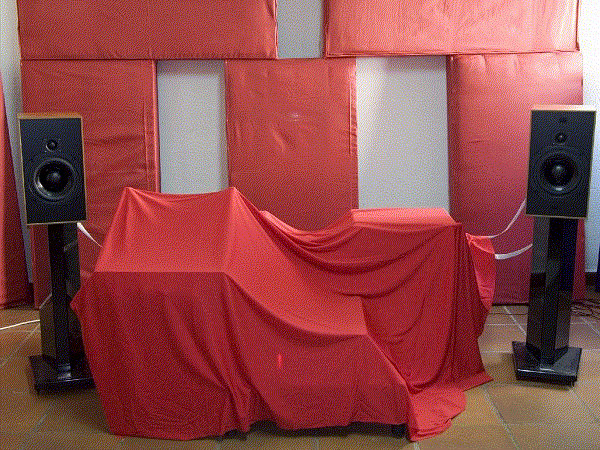Thanks very much for the article link, Thad. It was enlightening to read the thoughts of someone who was, in many ways, a pioneer of putting hi-fidelity audio in homes. And his thoughts resonate with much of how I approach this area...with skepticism and objective thinking.
Here is another link that makes for very interesting reading. It echoes my thoughts almost exactly. The author does not seem to be a hard-core objectivist nor an emotional subjectivist, and the article is balanced on the merits of both lines of thinking.
NwAvGuy: Subjective vs Objective Debate
On the HFV forum at least, we should stop being tolerant towards anyone who uses the "if our ears hear a difference, then a difference is there, and will be proved when Science is sufficiently advanced to measure it" argument. This is like saying: "my car actually flies just a little above the road while I'm driving....I can feel it. But because automotive engineering does not have the precision tools to measure that slight gap between the tires and road, the measurements don't really show the effect!"
Here we go...
In the article quoted in my previous post, it is pretty evident that a simple fiber optic cable is enough to disprove Einstein's relativity theory. Do I need to say more?
Coming to more real-life examples, here are a couple:
(1) Like our ears-nerves-brain system forms the sensory perception of hearing, it is the tongue-nerves-brain system that gives us "taste". You serve the same dish to different persons and how do you decide that it tastes the same to each and every person? Do we need measurements to understand the differences in taste or without measurements, do we conclude that all tasted the same?
(2) You cook a dish and let another person do the same using the same ingredients, vessels, cooking medium etc. Do both dishes taste the same? How do you envisage measurements to scientifically prove the differences?
The whole point is the perception of hearing, or more correctly listening. I personally know of a few guys who are such wonderful listeners that they can instantaneously point out a sudden discordent note in an orchestra playing several instruments. There are people who can enoy and appreciate the different flavours and tastes of a single dish made of several ingredients whereas there are some who can swallow whatever is given but cannot distinguish tastes (unless something hurts). I drink coffee and enjoy it when it is made from roasted and ground coffee beans concentrated through a water percolator and mixed with milk and sugar. I feel nothing when the same is made from the so-called instant coffee powder. Music is similarly not just a single entity subject to measurements alone. A full-fledged orchestral music playing hundreds of instruments and vocals can be enjoyed better if you have systems with high resolving power giving you the feel of them collectively as well as individually compared to a system without. Similarly someone mentions about listening to a vocal live and questions the effectiveness of the reproducing components and accessories. Believe me, a good system with the right accessories certainly brings the two close together whereas a mediocre system treats both the real coffee and instant coffee the same.
Very close to my native place in Kerala, there is a temple town called Ambalapuzha which is very famous for its so-called kheer (called 'palpayasam' in Malayalam) made mainly from milk, rice and sugar. That taste is unique in that several people have tried the same recipe with the same ingredients and in old times, some of the kings had even used the same vessels outside the temple premises. But noone has ever succeeded in recreating that flavour, at least to my knowledge. Call it divine, or superstition, whatever it might be, but truth is truth.
Everything in life is not subject to scientific measurements and I am not ashamed to declare that I belong to that camp which believes every small thing in a whole system of audio components, be it electronics, cables, stands, supports etc has an impact.
Sorry for this but I want to set things right after reading your
"On the HFV forum at least, we should stop being tolerant towards anyone who uses the "if our ears hear a difference, then a difference is there, and will be proved when Science is sufficiently advanced to measure it" argument". To put it mildly, it smacks of impertinence.
cheers.
murali




